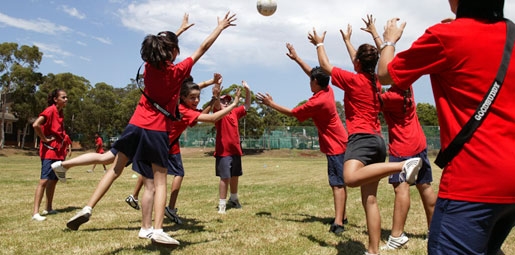
We already know that physical education and athletic programs in schools are an important way to promote student fitness and fight childhood obesity. But all that moving around may also confer significant mental health benefits, according to a new study that shows regular exercise may help buffer bullied teens against suicidal thoughts and behaviors.
Using data from the Centers for Disease Control and Prevention’s National Youth Risk Behavior Survey of 13,583 high school students, researchers from the University of Vermont found that four or more days of physical activity per week reduced suicide attempts in bullied teens by as much as 23 percent. The findings were published in the Journal of the American Academy of Child and Adolescent Psychiatry.
Overall, about 30 percent of all students surveyed reported feeling sad for more than two weeks over the last year, and 22 percent said they even had thoughts of suicide. Bullied students, who are at heightened risk for mental health issues and poor academic performance, were three times more likely than their non-bullied peers to experience suicidal ideation, which includes “thinking about, considering, or planning suicide“. But those students who engaged in physical activity at least four times a week were significantly less likely to experience sadness and harmful thoughts, the study found, and the benefits were greatest for those who exercised six to seven days a week.
The findings come at a time when many physical education programs are being cut back. Approximately 44 percent of school administrators have significantly cut time allotted for PE and arts programs across the country, according to a 2013 report from the Institute of Medicine. In addition to budget shortfalls, experts say many schools are cutting back or even eliminating these important programs to devote more time to subject areas like reading and math in order to meet the rigorous assessment standards of the 2001 No Child Left Behind Act.
While this might seem like a noble goal, experts in public health and education say cutting back on kids’ physical activity time is likely to results in worse academic outcomes, in addition to poorer mental and physical health.
In its resolution on recess, the National PTA outlined the numerous benefits of recess and physical activity, including “greater academic achievement and cognitive functioning; better classroom behavior; increased socialization, school adjustment and overall social development; and improved physical and mental health.” Because of these benefits, the Institute of Medicine has recommended that the Department of Education designate physical education as a core subject like math and reading, saying “it is just as important because it affects kids’ health, cognitive function and overall development.”
Now, we know it may also help to reduce negative emotions and suicidal thoughts in the 30 percent of teens who are bullied each year. Sounds like a pretty good reason to revive recess.
If you — or someone you know — need help, please call 1-800-273-8255 for the National Suicide Prevention Lifeline. If you are outside of the U.S., please visit the International Association for Suicide Prevention for a database of international resources.
